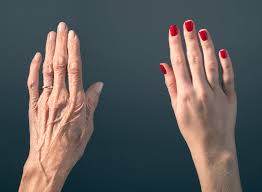
Breaking News
 Which party represents Americans?
Which party represents Americans?
 Even The Best AI Scenario Is The End Of Everything We've Ever Been
Even The Best AI Scenario Is The End Of Everything We've Ever Been
 In Simulated War Games, Top AI Models Recommended Using Nukes 95% Of The Time
In Simulated War Games, Top AI Models Recommended Using Nukes 95% Of The Time
 Rising Cancer Rates, the Globalist Agenda, and the Big Business Land Grab Making You Poor
Rising Cancer Rates, the Globalist Agenda, and the Big Business Land Grab Making You Poor
Top Tech News
 New Spray-on Powder Instantly Seals Life-Threatening Wounds in Battle or During Disasters
New Spray-on Powder Instantly Seals Life-Threatening Wounds in Battle or During Disasters
 AI-enhanced stethoscope excels at listening to our hearts
AI-enhanced stethoscope excels at listening to our hearts
 Flame-treated sunscreen keeps the zinc but cuts the smeary white look
Flame-treated sunscreen keeps the zinc but cuts the smeary white look
 Display hub adds three more screens powered through single USB port
Display hub adds three more screens powered through single USB port
 We Finally Know How Fast The Tesla Semi Will Charge: Very, Very Fast
We Finally Know How Fast The Tesla Semi Will Charge: Very, Very Fast
 Drone-launching underwater drone hitches a ride on ship and sub hulls
Drone-launching underwater drone hitches a ride on ship and sub hulls
 Humanoid Robots Get "Brains" As Dual-Use Fears Mount
Humanoid Robots Get "Brains" As Dual-Use Fears Mount
 SpaceX Authorized to Increase High Speed Internet Download Speeds 5X Through 2026
SpaceX Authorized to Increase High Speed Internet Download Speeds 5X Through 2026
 Space AI is the Key to the Technological Singularity
Space AI is the Key to the Technological Singularity
 Velocitor X-1 eVTOL could be beating the traffic in just a year
Velocitor X-1 eVTOL could be beating the traffic in just a year
Rapid Aging Reversal Achieved With Human Cells

Transient reprogramming, mediated by transient expression of mRNAs, promotes a rapid reversal of both cellular aging and of epigenetic clock in human fibroblasts and endothelial cells, reduces the inflammatory profile in human chondrocytes, and restores youthful regenerative response to aged, human muscle stem cells, in each case without abolishing cellular identity.
Old human cells can become more youthful by coaxing them to briefly express proteins used to make induced pluripotent cells, Stanford researchers and their colleagues have found. The finding may have implications for aging research. Elderly mice regained youthful strength after their existing muscle stem cells were subjected to the rejuvenating protein treatment and transplanted back into their bodies.
The proteins, known as Yamanaka factors, are commonly used to transform adult cells into induced pluripotent stem cells, or iPS cells. Induced pluripotent stem cells can become nearly any type of cell in the body, regardless of the cell from which they originated. They've become important in regenerative medicine and drug discovery.
By making old human cells in a lab dish to briefly express Yamanak proteins rewinds many of the molecular hallmarks of aging and renders the treated cells nearly indistinguishable from their younger counterparts.



